SPECIAL REPORT • BROAD-BASED LIVELIHOODS

Cultivating powerful futures
Social grants are most effective when used to empower the disadvantaged to become agents of change in their own lives. Here is how SocioTech, a Pretoria based social enterprise, is transforming lives through food gardening and entrepreneurial training
BY Anna Trapido | Journalist, Pretoria
THE RIGHT to food is enshrined in the South African constitution and yet by the end of 2020, more than 24 million of the country’s inhabitants were living in stressed or higher levels of food insecurity.* While Covid-19 undoubtedly had an aggravating effect, the underlying drivers of such stress are chronic, systemic and predate the pandemic. The expanded definition of unemployment (which includes discouraged job seekers) stands at 46.6% for the third quarter of 2021 and this figure is on an upward trajectory.
Ever increasing numbers of South Africans depend on social grants and food aid for survival. As a country with a proud history of engaging people’s power to overcome injustice, South Africa cannot afford (both literally and figuratively) to develop a culture of passive dependence. While state social security measures are an essential safety net for society’s most vulnerable, there is an increasing understanding that grants are most effective when used, not as a permanent prop, but rather as capital to stimulate entrepreneurial activities in disadvantaged communities.
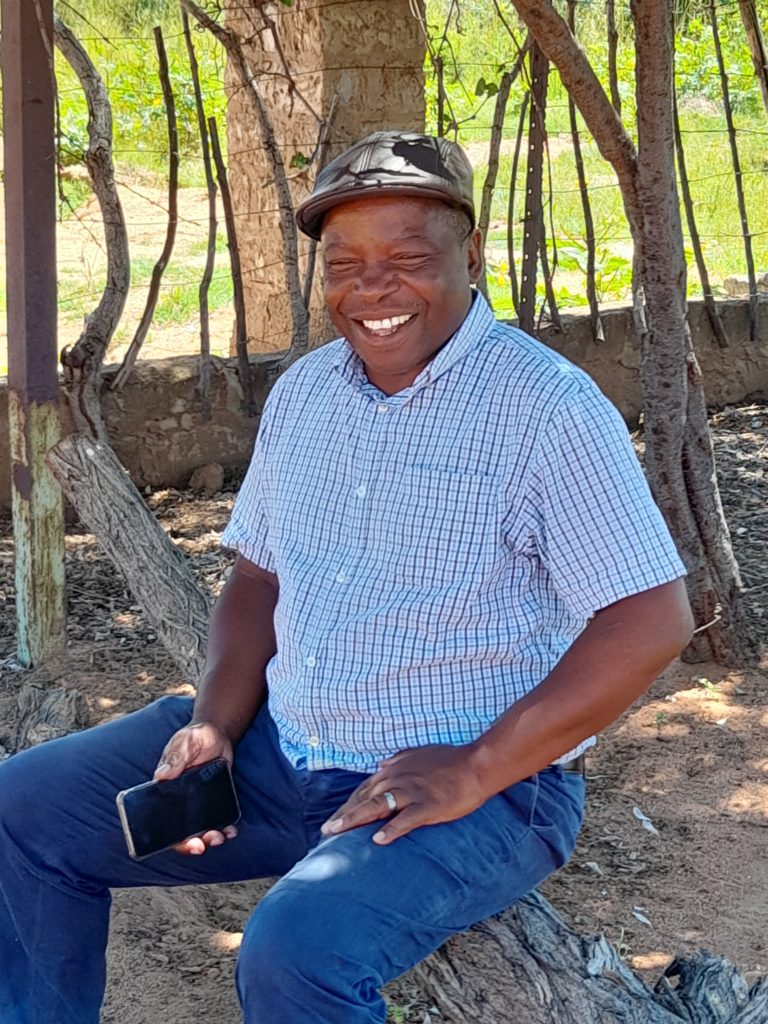
Empowering individuals
Such a strategy forms part of the innovative approach adopted by SocioTech (https://sociotech.co.za/). This Pretoria-based social enterprise works in more than 300 villages and townships across eight of South Africa’s nine provinces. The organization’s CEO, Marna de Lange, explains that: “We work within a Broad-Based Livelihood (BBL) model which seeks to develop, implement at scale, and refine grassroots processes that engage and support people to be agents of change in their own lives. If the 24 million currently living in stressed or higher levels of food insecurity were to generate just R50 extra per week from own effort, it would add more than R60 billion output to the national economy. The poor are the greatest underutilized asset to our country. We would do well to respect that.”
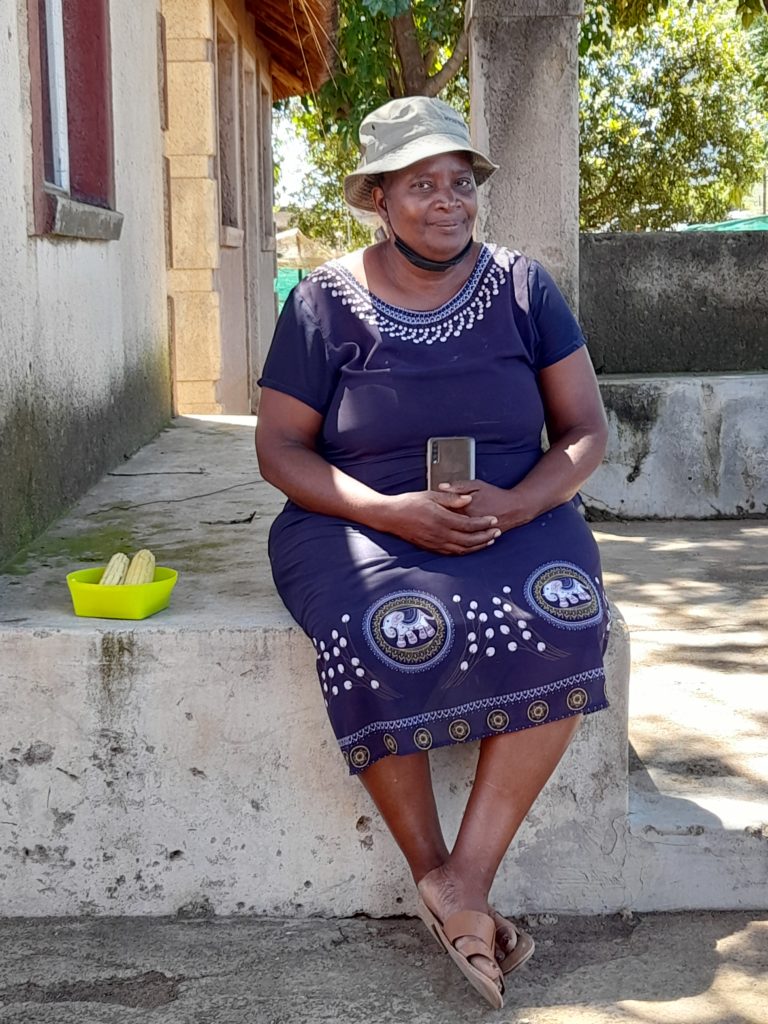
South Africa cannot afford (both literally and figuratively) to develop a culture of passive dependence
Facilitator Charles Bisimwa describes how the organization transforms this aspect into reality through: “Keeping the barriers to entry very low. The beauty of the way we work is that people can start small and families can feel almost immediate relief from some of their stresses but, at the same time, there are also no boundaries to the extent of potential growth and diversification. The BBL programme ignites the flame of hope in the hearts of our participants and then we all work together to keep it burning brightly. I see this hope translated into action and fulfillment on a daily basis.”
Starting with people’s most pressing need, successful food gardening is the first step in the BBL journey towards confident, economic independence. The BBL MyFood programme empowers families with nutritional knowledge. Participants are offered information about balanced diets including the importance of fruit and vegetables and the long-term developmental consequences of micronutrient deficiencies for child health. De Lange says that: “This dietary education often creates great discomfort for those at the bottom of the socio-economic pyramid, who simply cannot afford to buy fresh produce—and this motivates them to undertake the agro-ecological food gardening training.”
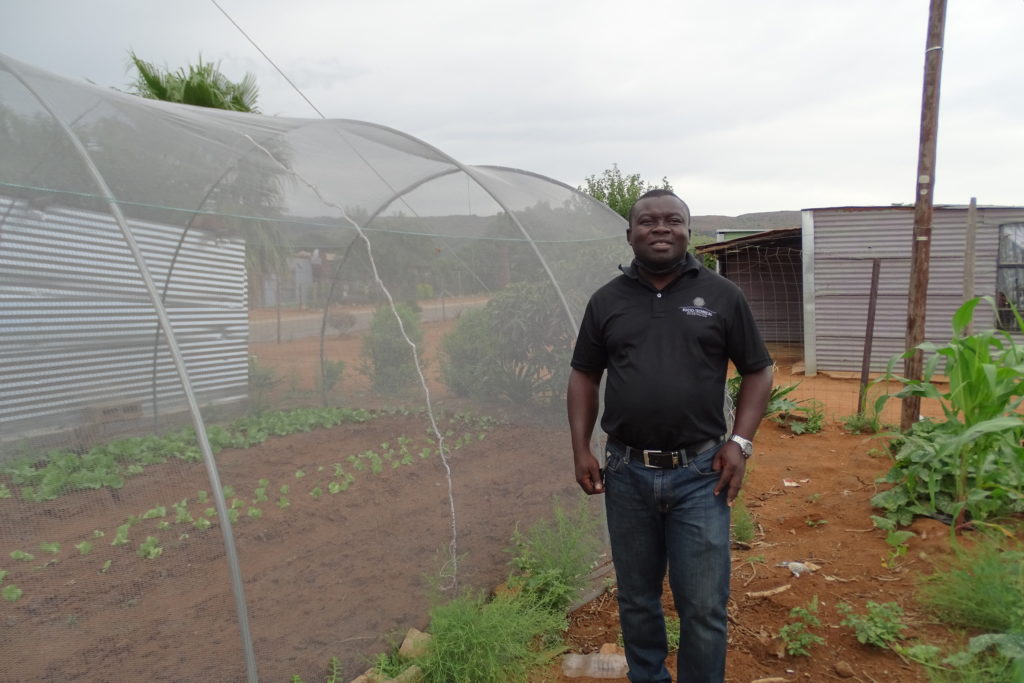
The results are rapid. As facilitator Bisimwa observes: “Within the very first three-hour session of MyFood, a person can be in production! We teach people to farm God’s way using organic cultivation and pest management methods and with careful, consistent mentoring and monitoring, results show quickly.” Fellow BBL facilitator Caroline McCann concurs that: “Within two months, participants are already eating from their own efforts. Soon they have surplus. When there is surplus that is the moment for the BBL MyBusiness training to begin with selling strategies based around supplying neighbours. Everyone wins. Neighbours get good food at low prices and our participants get their first step into the world of business.”
The Phinda-Phinda process
Husband and wife facilitator team, Di and Cletus Damba have been working with SocioTech for a decade but say that: “It is still so exciting to see the dynamism that can come when participants are introduced to concepts such as budgeting and record-keeping. We show them how to control expenses so that they do not exceed income within personal and business finances. This leads on to discussions around the difference between just making money and actually making profit. Once these foundations of good business practices are in place, the sky is the limit. The skills and confidence the MyBusiness brings opens the door for people to diversify into any number of different business activities (what we call side hustles).”
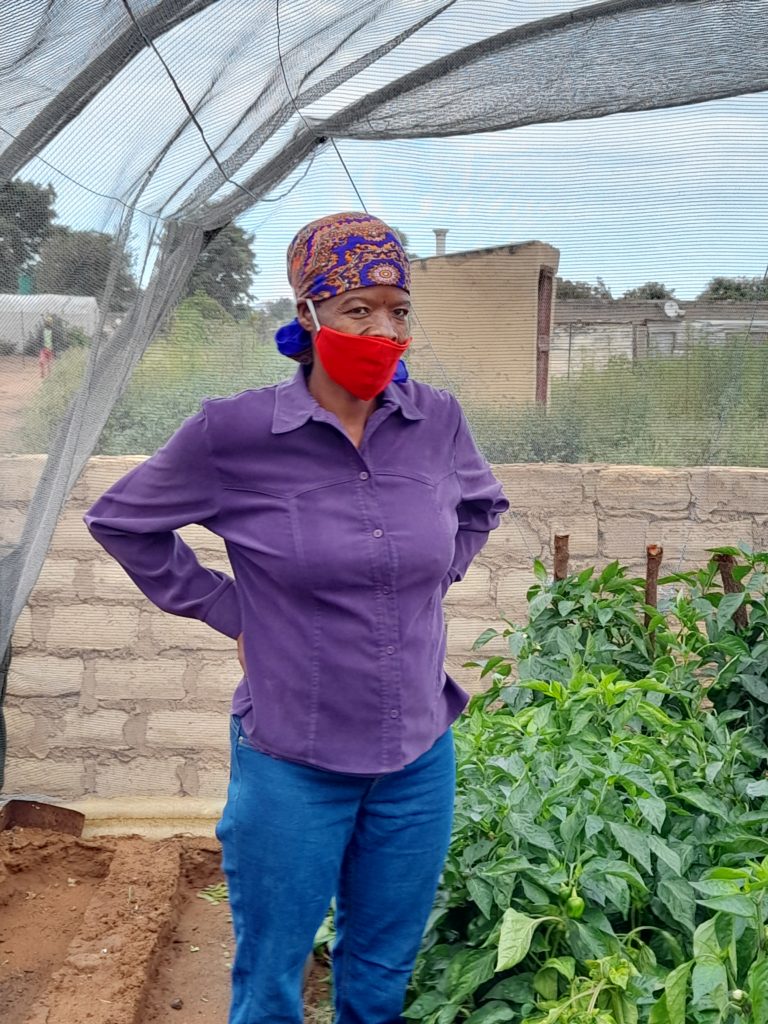
This process of diversification is supported by the MyFuture programme which BBL facilitator Kwena Chipi describes as: “The book of acts, where participants discover their God-given talents and learn how to structure economic activity around their personal gifts. They are also encouraged to cherish and nurture personal relationships and harmony at home as an essential foundation for lasting business success.”
Within two months, participants are already eating from their own efforts
The SocioTech teaching methods are designed to create a learning culture that prepares participants for future learning and equips them with the skills and enthusiasm to transfer their new knowledge to friends, family and neighbours. Peer-to-peer teaching is incentivized through the BBL Phinda-Phinda process whereby once a person has implemented what they have learnt through MyFood, and then taught three further households to properly prepare and plant their own gardens, that person is eligible for a shade cloth covered vegetable tunnel. De Lange proudly observes that: “Through the Phinda-Phinda process, confidence and community spirit are enhanced. Many participants have discovered a talent and a love for teaching and continue to do so well beyond their first three Phinda-phindas; some then become fully fledged BBL facilitators themselves.”
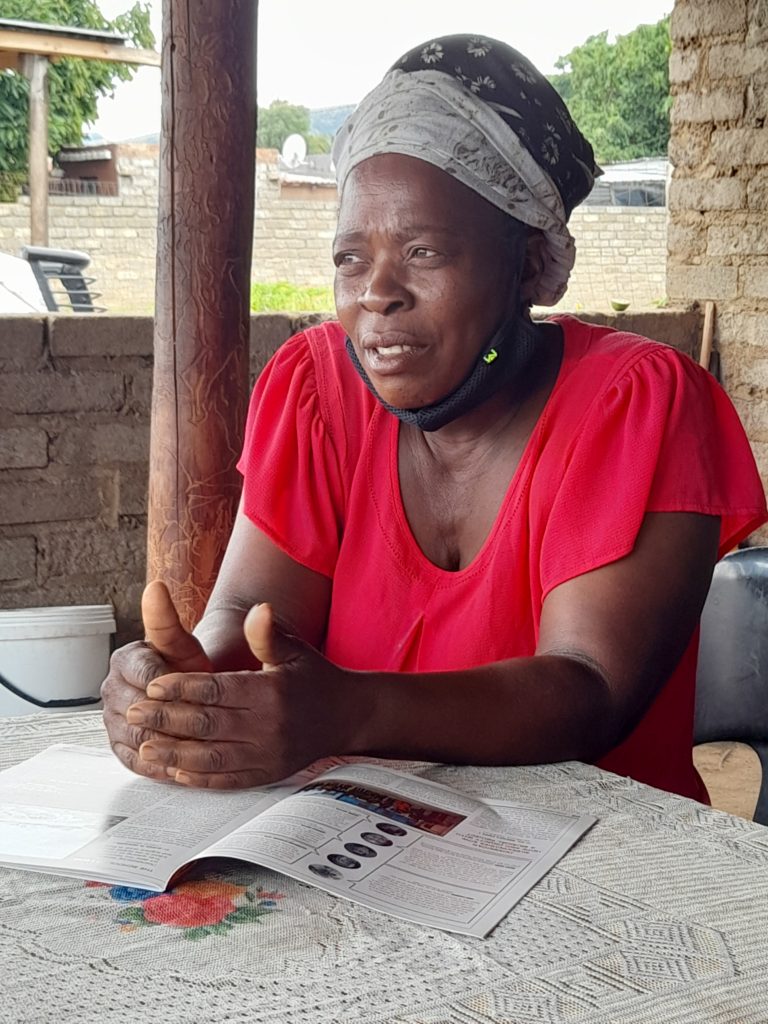
Sibusiso Mbatha is one such participant turned facilitator. He recalls that: “Right from the start, the way the BBL programme is structured really spoke to me. The more I learnt, the more excited I became about the potential for this philosophy to change not only me and my family but also my neighbours and eventually the whole country. BBL sees everyone (not just rich people) and it can touch the hearts of people who are losing hope. When you lose hope and you have no faith in the future, life seems very frightening. When you are frightened you just want to hide, not work. There is an amazing freedom and energy that comes with not being afraid of the future. If I could wish one thing for my country, it would be freedom from fear of the future. The book of Proverbs 28: 19 says that the one cultivating his ground will have plenty of bread but the one taking up worthless pursuits will have his fill of poverty. If we live this way we can defeat poverty, fear and worthless pursuits and look forward to a powerful future.”
| Dates To Remember |
|
April 2 – World Autism Awareness Day 4 – International Day for Mine Awareness and Assistance in Mine Action 6 – International Day of Sport for Development and Peace 7 – International Day of Reflection on the 1994 Genocide in Rwanda 7 – World Health Day 15 – Good Friday 17 – Easter Sunday 21 – World Creativity and Innovation Day 22 – International Mother Earth Day 23 – English & Spanish Language Day 24 – International Day of Multilateralism and Diplomacy for Peace 25 – World Malaria Day 28 – World Day for Safety and Health at Work 30 – Our Lady, Mother of Africa 30 – International Jazz Day May 1 – St Joseph the Worker, Workers’ Day 3 – World Press Freedom Day 8 – Remembrance and Reconciliation for Victims of Second World War 8 – World Migratory Bird Day 15 – International Day of Families 17 – World Telecommunication and Information Society Day 20 – World Bee Day 21 – World Day for Cultural Diversity for Dialogue and Development 22 – International Day for Biological Diversity 29 – Ascension of the Lord 29 – International Day of UN Peacekeepers 30 – World No-Tobacco Day |
